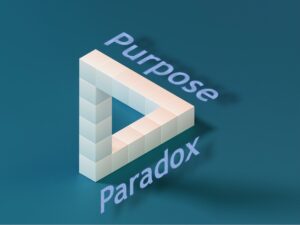 Good questions lead to good listening (and vice versa: good listening leads to good questions)! They build interpersonal bridges and create connections. Questions such as: ‘What moves you?’, ‘How does that make you feel?’ or ‘Would you like to tell me more?’ are usually sufficient. Yet it is more helpful to ask a disbeliever ‘What makes you doubt?’ than to give them advice, nag them or try to reassure them with ‘It’s not that bad’.
Good questions lead to good listening (and vice versa: good listening leads to good questions)! They build interpersonal bridges and create connections. Questions such as: ‘What moves you?’, ‘How does that make you feel?’ or ‘Would you like to tell me more?’ are usually sufficient. Yet it is more helpful to ask a disbeliever ‘What makes you doubt?’ than to give them advice, nag them or try to reassure them with ‘It’s not that bad’.
Author at Coach Mentoring Ltd: Kuno Roth
Listening. Better performance for the talker, the listener and organisation!
 ‘Listening leads to better performance — in the person who listens, in the person who is listened to and, as a consequence, in the whole organisation’, concludes listening researcher Guy Itzchakov [1]. Plus I would add: it also leads to better change processes and campaigns. So, why has listening training not long since become part of every organisational development project and campaign? Probably because people don’t think they have time for it.
‘Listening leads to better performance — in the person who listens, in the person who is listened to and, as a consequence, in the whole organisation’, concludes listening researcher Guy Itzchakov [1]. Plus I would add: it also leads to better change processes and campaigns. So, why has listening training not long since become part of every organisational development project and campaign? Probably because people don’t think they have time for it.
Knowledge management—how to transfer know-how when a colleague leaves
 Know-how is crucial and is a major part of the capital of all organisations, including the non-profit sector. It has three main components:
Know-how is crucial and is a major part of the capital of all organisations, including the non-profit sector. It has three main components:
- Expertise and experience — the knowledge,
- Methodological skills — the ability to apply knowledge,
- Social skills — the ‘necessary’ soft skills that enable this application to achieve the desired outcome.
The problem with fixating on the problem — So, what’s the solution?
 Drawing attention to issues and hoping that they will be fixed or solved is normal. It’s what we do every day: There’s a problem, like a dripping tap or a flat tyre or the mobile phone has no power, and we ‘analyse the problem’ and fix it easily. But when it comes to people, like interpersonal and social problems, things get complicated. That’s why I think we need to change our approach and focus on finding solutions. And that starts with the being.
Drawing attention to issues and hoping that they will be fixed or solved is normal. It’s what we do every day: There’s a problem, like a dripping tap or a flat tyre or the mobile phone has no power, and we ‘analyse the problem’ and fix it easily. But when it comes to people, like interpersonal and social problems, things get complicated. That’s why I think we need to change our approach and focus on finding solutions. And that starts with the being.
Diversity and inclusion: Beyond diversity washing and D&I missionaries
 There should be a consensus that, over time, D&I management becomes unnecessary because diversity and inclusion have become a natural culture. There would be no diversity washing; everyone has developed empathy for difference, and those who repeatedly feel like a minority in everyday social life no longer feel that way in the workplace.
There should be a consensus that, over time, D&I management becomes unnecessary because diversity and inclusion have become a natural culture. There would be no diversity washing; everyone has developed empathy for difference, and those who repeatedly feel like a minority in everyday social life no longer feel that way in the workplace.
Well-being support, more than a trend in organisations
 The multiple crises and chronic work overload have made “well-being” a top issue generally and especially in non-profit organisations. It is natural for NGOs to want to provide workplaces that promote rather than hinder well-being, but it is not always easy to do so.
The multiple crises and chronic work overload have made “well-being” a top issue generally and especially in non-profit organisations. It is natural for NGOs to want to provide workplaces that promote rather than hinder well-being, but it is not always easy to do so.
The Purpose Paradox: Leadership — Not practising what you preach
 “Be the change you want to see in the world.” — What Mahatma Gandhi wrote of the individual, perhaps applies even more to organisations founded to make the world more ecological, social, just and peaceful. NGOs ought to exemplify what they want to see in the world in their own, self-designed world. Unfortunately, this is not always the case! Hence the Purpose Paradox.
“Be the change you want to see in the world.” — What Mahatma Gandhi wrote of the individual, perhaps applies even more to organisations founded to make the world more ecological, social, just and peaceful. NGOs ought to exemplify what they want to see in the world in their own, self-designed world. Unfortunately, this is not always the case! Hence the Purpose Paradox.
Training evaluation to measure learning success and knowledge transfer
 Transfer of learning is the extent to which learners can apply their newly learnt skills, tools or techniques in everyday professional life. But how do you measure learning success and impacts? Organisations struggle to evaluate these effects, as unlike a weight or a temperature, they are expressed in changes in behaviour that cannot be directly measured.
Transfer of learning is the extent to which learners can apply their newly learnt skills, tools or techniques in everyday professional life. But how do you measure learning success and impacts? Organisations struggle to evaluate these effects, as unlike a weight or a temperature, they are expressed in changes in behaviour that cannot be directly measured.
